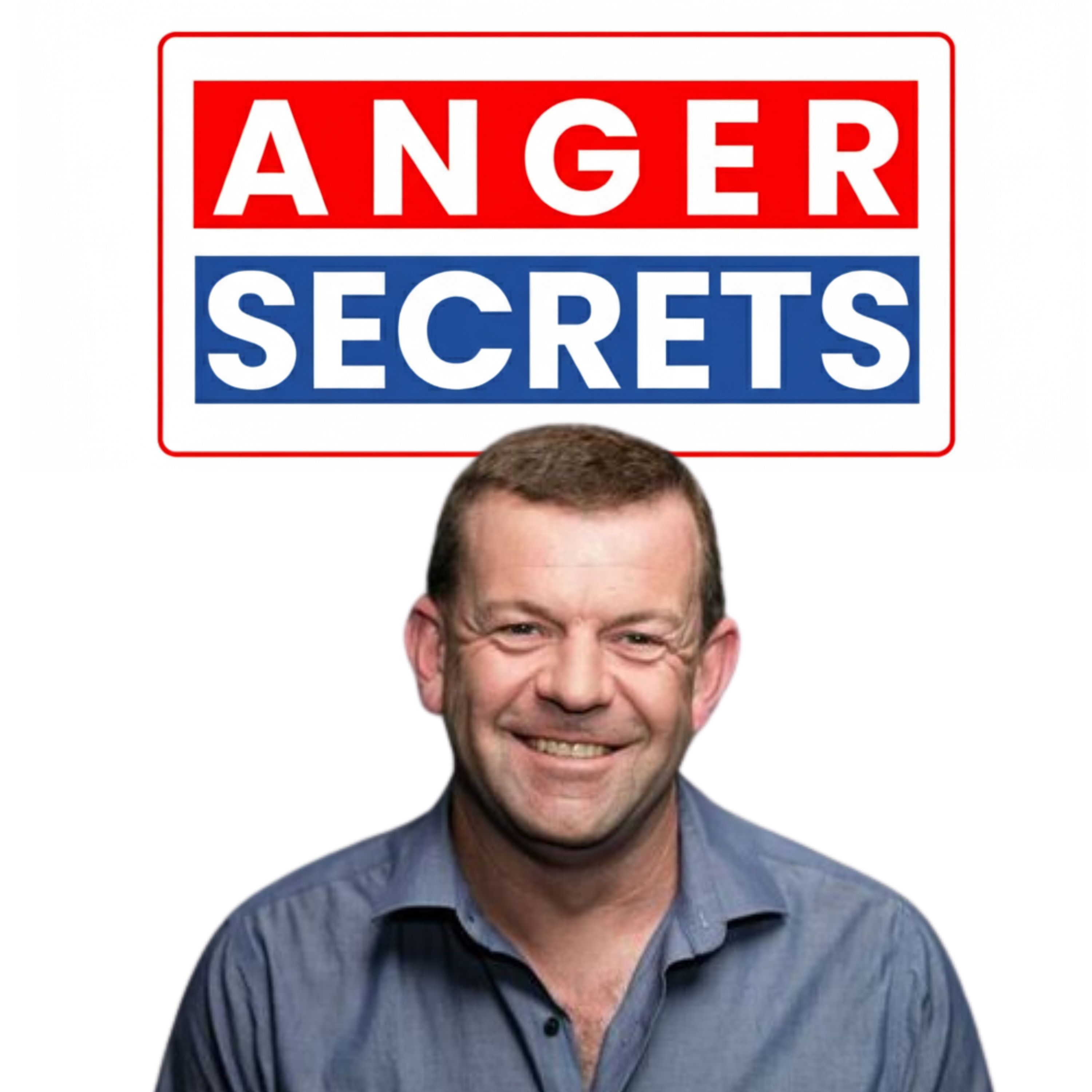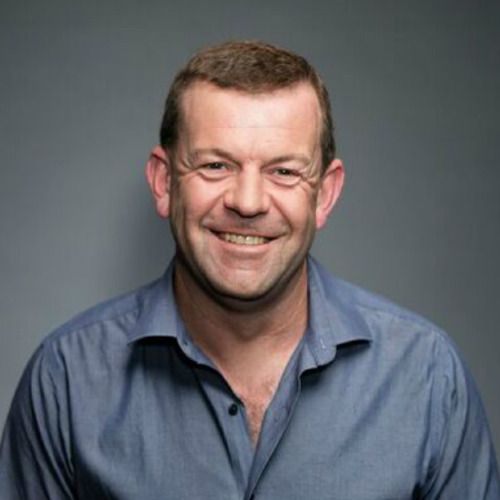Episode 140
140 - How To Stop The Blame Game
For more information on how to control your anger, visit angersecrets.com.
The blame game is a trap that keeps people locked in negative patterns and arguments. In this episode, anger expert Alastair Duhs explains that while blaming others feels good in the moment, it ultimately damages trust and connection in relationships.
Recognising and stopping the blame game is crucial for personal growth and healthier relationships. By practicing self-awareness, empathy and better communication, you can take control of your anger and foster more positive interactions.
Key Takeaways:
- The blame game can trap people in negative emotional patterns and arguments.
- The first step to breaking the blame habit is self-awareness and ownership of one's actions.
- Practicing empathy can shift the focus away from blame and foster connection.
- Communication without blame can lead to healthier conversations and relationships.
- Blaming others might feel empowering initially, but it ultimately leads to disconnection and hurt.
- Real strength comes from controlling one's own responses and not blaming others.
Links referenced in this episode:
For more information (and FREE resources) of how to control your anger, visit angersecrets.com.
For a FREE training on how to control your anger, visit angersecrets.com/training/.
To learn more about The Complete Anger Management System, visit angersecrets.com/course/.
Transcript
Have you ever walked away from an argument thinking if they would just change, everything would be fine?
Speaker A:Perhaps you go over every word they said or replay every mistake they made, but you never quite look in the mirror yourself.
Speaker A:That's the blame game and it's more common than you think.
Speaker A:But here's what most people don't realise.
Speaker A:The blame game isn't just unfair, it's a trap.
Speaker A:It keeps you locked in the same arguments, the same emotional patterns and the same pain.
Speaker A:This episode will show you how to spot it, stop it and take back control so you can build relationships that actually grow instead of fall apart.
Speaker A:Hello, I'm Alastair Dues and you're listening to episode 140 of the Anger Secrets podcast.
Speaker A:If you're new here, welcome.
Speaker A:And if you've been tuning in for a while, I'm really glad you're back.
Speaker A:For over 30 years, I've helped more than 15,000 people control their anger, master their emotions and build relationships that actually feel good again.
Speaker A:If you want help right now to control your anger, including a free training on how to control your anger in just seven days, head over to my website, angussecrets.com there's a link there to access that free training.
Speaker A:Or if you'd like to chat personally with me about your situation, you can also book a free 30 minute anger assessment.
Speaker A:Call with me.
Speaker A:I look forward to talking with you.
Speaker A:With that said, let's dive into today's how to stop the blame game.
Speaker A:Lets start by being honest for a second.
Speaker A:Have you ever had an argument maybe with your partner and walked away thinking this is all their fault?
Speaker A:Maybe you even said something like this out, always do this.
Speaker A:You never listen.
Speaker A:Or this is just like last time.
Speaker A:That right there is the blame game and it's one of the most common and destructive habits in relationships.
Speaker A:So what is the blame game really?
Speaker A:The blame game is what happens when something goes wrong and instead of taking a breath and reflecting on your part, your brain immediately goes into attack mode.
Speaker A:Playing the blame game doesn't always sound harsh.
Speaker A:Sometimes it's subtle, a little jab, a quiet judgment, a tone shift.
Speaker A:But whether it's a sharp accusation or a passive aggressive comment, the message is the this problem, it's you, not me.
Speaker A:But here's the thing.
Speaker A:Blaming feels good in the moment.
Speaker A:It gives you a sense of control, it protects your pride, it puts the spotlight anywhere but on you.
Speaker A:But there's a hidden cost.
Speaker A:Blame might give you a short term feel good factor, but long term it chips away at trust, at safety at connection.
Speaker A:Because when one person is always defending themselves, real communication dies.
Speaker A:To make this more clear, let me give you a quick example.
Speaker A:Lets say you and your partner just had an argument.
Speaker A:Instead of asking what was my part in this?
Speaker A:You think they're being so sensitive or they never take responsibility.
Speaker A:You might even bring up something from the past or focus on everything they said wrong.
Speaker A:But what you're really doing is avoiding something.
Speaker A:That thing is ownership.
Speaker A:And here's the when blame becomes your default, nobody wins.
Speaker A:You don't feel heard, they don't feel safe, and nothing really gets resolved.
Speaker A:Now the good news is blame is a habit.
Speaker A:And like any habit, it can be unlearned.
Speaker A:So how do you do that?
Speaker A:Let me walk you through five simple but powerful shifts you can start using today.
Speaker A:Shift 1 practice self awareness Blame often happens on autopilot, so the first step is learning to notice when it's happening.
Speaker A:Next time you catch yourself pointing the finger, pause and ask, am I placing all the responsibility on them right now?
Speaker A:Then follow it up with an even more powerful question.
Speaker A:What was my role in this?
Speaker A:Even if your part is small, sometimes just naming it changes everything.
Speaker A:Take ownership even if it's uncomfortable.
Speaker A:We all get things wrong.
Speaker A:We react too quickly, we speak too sharply, we shut down.
Speaker A:That doesn't make you a bad person, it makes you human.
Speaker A:But real growth happens when you can.
Speaker A:Yeah, that bit was on me.
Speaker A:You don't have to carry all the blame, just your share.
Speaker A:And ironically, the moment you own your part is often the moment the other person can too.
Speaker A:Practice empathy when blame takes over, empathy goes out the window.
Speaker A:Instead of blame, try slowing things down and asking what might the other person be feeling right now?
Speaker A:Are they stressed?
Speaker A:Overwhelmed?
Speaker A:Carrying something I don't know about?
Speaker A:You don't have to excuse their behavior, but understanding it softens your reaction and opens the door to connection.
Speaker A:Stop shoulding on them or yourself.
Speaker A:This shift is a sneaky one.
Speaker A:Blame often hides behind statements like they should know better, they shouldn't talk to me like that or I should be stronger.
Speaker A:These should statements trap you in frustration.
Speaker A:Instead, reframe the situation and what can I do differently next time?
Speaker A:What do I need right now?
Speaker A:This shift moves you from stuck to empowered.
Speaker A:Communicate without Blame One of the fastest ways to break out of the blame game is to change how you talk.
Speaker A:That means dropping the you always statements and starting with I feel.
Speaker A:It means saying things like I feel dismissed when I'm interrupted instead of you never listen.
Speaker A:This change in language takes the heat out of the conversation and makes it way more likely that the other person will actually hear you.
Speaker A:Now, I know all this might sound simple, but if blaming is something you've done for years or even decades, it takes time to shift.
Speaker A:So be kind to yourself.
Speaker A:You'll still slip up, you'll still get triggered.
Speaker A:That's okay.
Speaker A:What matters is what you do next.
Speaker A:If blame has become a pattern in your life and you're ready to break it, know this.
Speaker A:You don't have to do it alone.
Speaker A:This is exactly the kind of work I do in my online program, the Complete Anger Management System.
Speaker A:If you want help turning this insight into real, lasting change, just head over to angersecrets.com you'll find the course and free resources to get you started.
Speaker A:Or you can book a free 30 minute call with me.
Speaker A:No pressure.
Speaker A:Now let me leave you with Blame feels like power, but in reality it's disconnection.
Speaker A:The moment you stop blaming is the moment you start healing.
Speaker A:You can't control how other people show up, but you can control how you respond.
Speaker A:And that's where your real strength lives.
Speaker A:Ok, that's it for today's episode, how to Stop the Blame Game.
Speaker A:If this episode was helpful for you, hit that follow button and maybe leave a quick review.
Speaker A:It helps others find the podcast and it might be the exact nudge so someone else needs right now.
Speaker A:And remember, if you want a free training on how to control your anger in seven days or a chance to chat one on one with me, just head over to angersecrets.com there's a free 30 minute call you can book.
Speaker A:No pressure.
Speaker A:And if you're ready to get serious about changing how you show up in your relationship, take a look at the complete Anger management system@AngerSecrets.com course.
Speaker A:I'd love to help you control your anger once and for all.
Speaker A:And finally, remember, you can't control what other people say or do, but you can control yourself, your tone, your choices and how you respond to others.
Speaker A:And that's where your real power lives.
Speaker A:Take care and I'll talk to you soon.
Speaker B:The Anger Secrets podcast is for general informational purposes only and does not constitute the practice of counseling, psychotherapy or any other professional health service.
Speaker B:No therapeutic relationship is implied or created by this podcast.
Speaker B:If you have mental health concerns of any type, please seek out the help of a local mental health professional.


